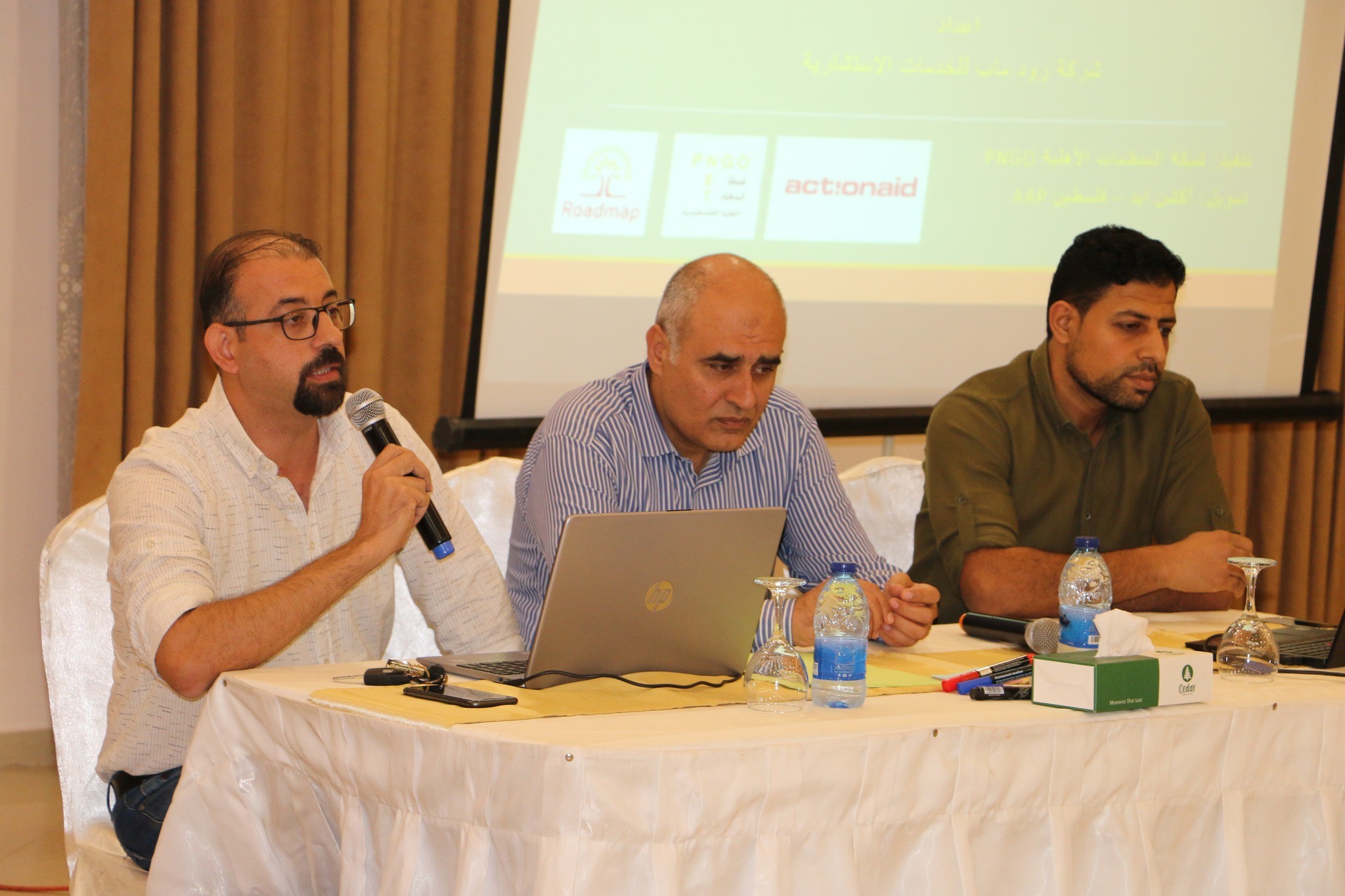Palestinian NGOs Network (PNGO), held a workshop in which PNGO presented findings and recommendations of a study titled "Bridging between concepts of steadfastness and humanitarian action and development in the Gaza Strip, Area C in the West Bank and East Jerusalem, with particular attention to women and youth".
The study was prepared by a group of consultants and experts, including Zakariya Alsalout, Walid Alnabahin and Dr. Osama Albalaawi in both Gaza Strip and Area C of the West Bank, within the PNGO project "Strengthening Palestinian young people, particularly Young Women’s Leadership and influence for resilient, just and green Societies" implemented in partnership with Action Aid-Palestine.
Mr. Amjad Shawa, director of PNGO, inaugurated the workshop by asserting that the study is the first of its type, as it lays the foundations for possible mechanisms that would enable all local active bodies build up steadfastness. Alshawa also pointed out that the study outlines all challenges, faced by local bodies as well as the bodies' requirements for building up capacities that would in turn help enhance steadfastness within the bodies' programs themselves.
He asserted that the study presents an analytical approach for analyzing and assessing potential risks in seven selected communities in the Gaza Strip, West Bank and East Jerusalem, at the levels of education, social protection, shelter and food security.
Shawa also noted that the study demonstrates ways for NGOs to figure out and analyze risks within their works, saying that that such analytical approach is a basic component of building up capacities for steadfastness.
He further noted that within such an approach, NGOs should make sure to figure out and analyze risks at the levels of communities, organizations and other various sectors.
Shawa made clear that the study offers a unique model for risks registration that can be applied by NGOs, within Palestinian context.
The researchers, who prepared the study agreed that the study has been conducted in a participatory approach and that it addresses concepts of risks, ways to analyze those risks from Palestinian and international perspectives.
According to the researchers, the study illustrates ways to confront and learn from risks for the best of effective interventions and schemes by the NGOs. They also explained that the study highlights main risks, faced by local Palestinian communities in Gaza Strip, West Bank and East Jerusalem.
They pointed out that the study addresses concepts and standards of steadfastness in different countries around the world, with special emphasis on factors behind building up steadfastness in Palestine, particularly. The study suggests ways to build up capacities for steadfastness in Palestinian communities.
The study also highlights the concept of Humanitarian Development Peace Nexus (HDP), as well as key restrictions to apply the concept in the Palestinian society. It highlights key guidelines for applying the HDP concept within NGOs and other various sectors, as well as at governmental and international levels.
The study recommends that steadfastness should be taken as a main criterion for interventions and that this criterion should be supported and implemented. It also recommended encouraging all sectors and working groups to conduct and maintain an updated analysis of risks, and the need to develop relevant response and preparedness plans, and to strengthen and support capacity-building programs to identify and respond to specific risks within societies, and the importance of allocating more programs and interventions to build resilience, and to adopt localization as a mandatory requirement for all interventions.
The study also emphasizes on the need for expanding networking among all concerned parties in a way that would build up strong alliances for the best of appropriate flow of information.
Coordination is also recommended by the study, in a way that would reinforce cooperation and openness to avoid double services and enhance capacity building for steadfastness of NGOs and reinforce role of target groups, in addition to setting steadfastness strategies and mechanisms. Furthermore, the study recommends creating m
ore programs for capacity building, especially in terms of steadfastness.
Noteworthy, the study was made possible following a series of consultations among various NGOs, governmental institutions and other organizations such as municipalities, local councils in the target areas of the study.
The study also included a questionnaire that targeted more than 800 citizens, who live in areas of the study.



